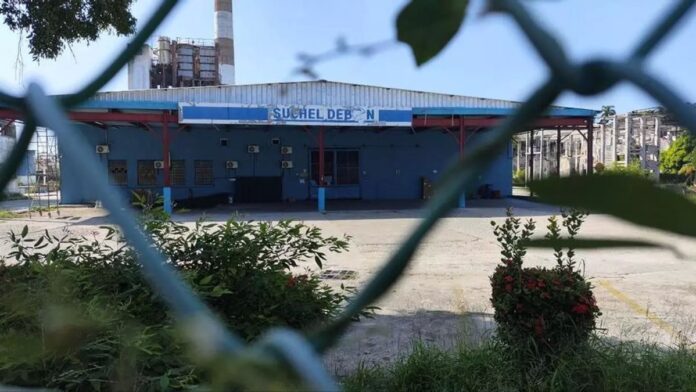a day after a report on its prices

By Juan Diego Rodriguez and Olea Gallardo (14ymedio)
HAVANA TIMES – Contrary to what seemed like a promising future, the China Import store in Havana, which was the subject of a report in 14ymedio yesterday and had just been inaugurated a little over a month ago in Havana, was found closed this Friday morning. “Closed until further notice,” warned the security guard to anyone who approached the location at Manglar and Oquendo, very close to the Cuatro Caminos market. The woman held a piece of paper with a phone number for customers to call with their questions. Below the number, the word “Chinese” was crossed out, and further down, it said “Melissa.”
This newspaper called the contact number, and an Asian-accented voice answered, saying they had no reopening date. “We are closed until further notice, waiting for guidance,” the voice said in reasonably good Spanish.
From the front of the massive warehouse, which until a few years ago was part of the old Sabatés soap factory, the sign with the store’s name had been removed, exposing the faded letters of “Suchel Debon,” the state-owned company that took over the factory after the 1959 Revolution.
Numerous customers who had approached this morning were annoyed and commented on the situation. “It’s already dead,” said an elderly man who lived nearby but had just found out that the store existed. “What was there? Was it at a good price?” he asked others with experience, with a frustrated look in his eyes. “Everything, at great prices,” another person replied.
This person speculated that the closure might have had to do with the prices: “What happened was that they told the Chinese owner: you can’t sell at this price, you have to sell at the price we tell you.” In any case, the closure happened without prior notice. “I don’t think they expected anything because we came yesterday, and they told us to come back tomorrow, and there was a sign and everything, and today it was taken down,” a young woman in the group that had gathered early in the morning recounted.
China Import, which was marketed as a wholesale store, housed endless rows of shelves with all sorts of goods —clothing, footwear, electronics, household items, perfumes— at prices much lower than in the informal market. As an employee explained to this newspaper on Wednesday, they accepted national currency “at the exchange rate of the day”—as stated on the signs below the products—referring to the informal exchange rate, currently around 320 pesos per dollar, both in cash and by transfer, but under no circumstances in bills smaller than 200 pesos.
However, the condition for purchasing merchandise was not easy for everyone: customers had to spend more than 50 dollars—equivalent to 16,000 pesos at the current exchange rate —and buy items in large packages.

Although social media users had mentioned the business when it first appeared in mid-July, no official media had reported on the store’s inauguration, nor were there any details about its owners. Chinese wholesale businesses had already been established on the island, but only online, such as Nihao53 or the Dofimall stationery store. The first has been operating under the umbrella of the Leke Holding Group since 2022, although a maze of obstacles and a certain scarcity of products have made purchasing on its website difficult.
The “Chinese Costco,” as a customer jokingly called it this week, has met the same fate as the so-called “Cuban Costco,” Diplomarket. This foreign-currency supermarket closed at the end of June, and its owner, Cuban-American Frank Cuspinera Medina, was detained along with his wife, with no information on their whereabouts to date.
First published by 14ymedio and translated and posted in English by Havana Times.
Read more from Cuba here on Havana Times.




